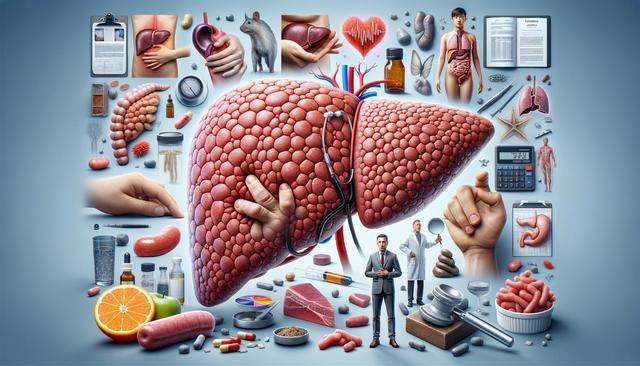What Is Fatty Liver Disease?
Fatty liver disease, also known as hepatic steatosis, occurs when excess fat accumulates in the liver. This condition can be either alcohol-related or non-alcoholic, with the latter being more common, especially among individuals with obesity, diabetes, or high cholesterol. In many cases, fatty liver disease may not present any noticeable symptoms in its early stages. However, as the condition progresses, it can affect liver function and manifest in various ways, including skin-related symptoms like itching. Understanding the connection between fatty liver and itching requires a closer look at how liver health impacts the body’s systems.
Why Does Fatty Liver Cause Itching?
Itching, or pruritus, is a symptom that can be associated with liver conditions, particularly when liver function is impaired. In fatty liver disease, the liver’s ability to process and eliminate bile may be compromised. This can lead to a build-up of bile acids in the bloodstream, which can irritate nerve endings in the skin and cause itching. Other factors that may contribute to itching in fatty liver disease include:
- Accumulation of toxins that the liver is unable to filter efficiently
- Inflammation of liver tissue that affects skin health
- Dry skin due to metabolic imbalances
Itching caused by liver issues often differs from typical skin-related itching. It may be more generalized, without a visible rash, and tends to worsen at night or affect specific areas like the palms and soles.
Recognizing the Symptoms Beyond Itching
While itching can be an early indicator of liver dysfunction, it’s important to consider it alongside other symptoms of fatty liver disease. These may include:
- Fatigue and general weakness
- Abdominal discomfort or fullness
- Unexplained weight loss
- Yellowing of the skin or eyes (in advanced cases)
Itching alone is not enough to diagnose fatty liver disease. If you’re experiencing persistent itching with no clear dermatological cause, it is essential to consult with a healthcare provider who can run appropriate liver function tests and imaging studies. Identifying fatty liver disease early can help in managing symptoms and preventing progression to more severe liver conditions such as fibrosis or cirrhosis.
Managing Itching Linked to Fatty Liver
Addressing liver-related itching involves managing the underlying fatty liver condition. Lifestyle changes are often the first line of defense. These may include:
- Adopting a balanced diet rich in fruits, vegetables, whole grains, and lean proteins
- Engaging in regular physical activity to help reduce liver fat
- Limiting alcohol intake and avoiding medications that may strain the liver
In addition to these changes, specific treatments may help relieve itching:
- Topical creams or moisturizers to soothe dry skin
- Antihistamines, though they may not always be effective for liver-related itching
- Bile acid sequestrants, which help remove bile acids from the bloodstream
It’s crucial to work with a healthcare provider to determine the most appropriate treatment strategy based on the severity of your symptoms and liver health.
When to Seek Medical Attention
Persistent, unexplained itching should not be ignored, especially if accompanied by other signs of liver dysfunction. Conditions like cholestasis, a reduction in bile flow, can be serious and require medical intervention. Seek medical care if you notice:
- Worsening of itching over time
- Yellowing of the skin or eyes
- Dark urine or pale stools
- Swelling in the abdomen or legs
These symptoms may indicate more advanced liver issues that need immediate attention. Early diagnosis and consistent monitoring can make a significant difference in managing fatty liver disease and reducing its impact on your quality of life.
Conclusion: Addressing Liver Health for Lasting Relief
Fatty liver itching can be a frustrating and uncomfortable symptom, but it often signals a deeper issue with liver function. By recognizing the link between liver health and skin discomfort, individuals can take proactive steps toward diagnosis and management. Lifestyle changes, medical treatment, and regular check-ups play key roles in controlling fatty liver disease and alleviating related symptoms like itching. If you’re experiencing unexplained itching, consider speaking with a healthcare professional to explore the possibility of liver involvement. Taking action early can help protect both your liver and your overall well-being.




Leave a Reply